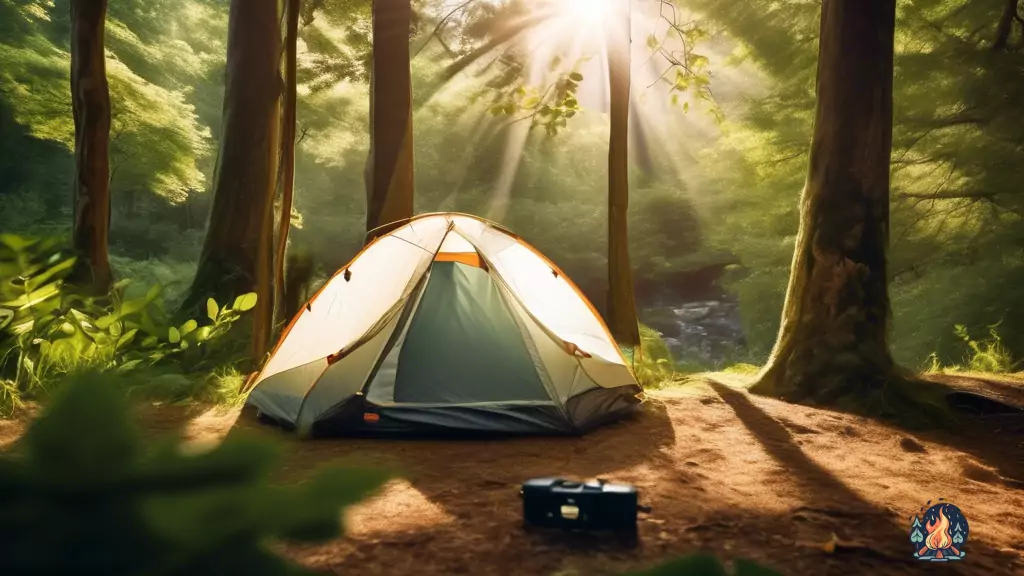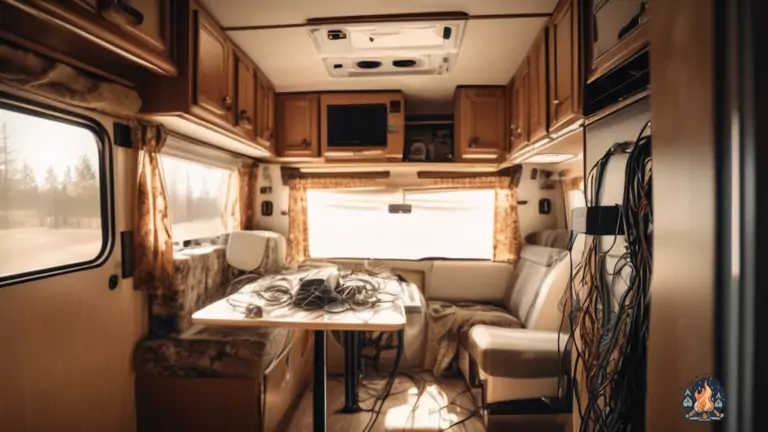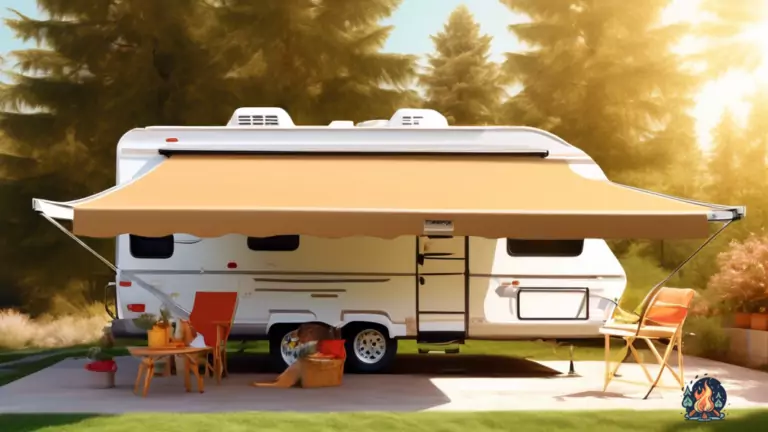Lighten Your Load: Understanding Tent Weight Considerations
by Kevin Fairbanks • Updated: January 30, 2024
Lighten your load and embark on outdoor adventures with ease. Learn all about tent weight considerations and discover expert tips for choosing the perfect lightweight tent. Say goodbye to heavy loads and hello to unforgettable adventures today!

Are you tired of feeling like you’re carrying a small elephant on your back every time you go camping? Do you dream of a lightweight, easy-to-carry tent that won’t leave you huffing and puffing up the trail? Well, my friend, you’re in luck! In this article, we’re going to delve into the world of tent weight considerations and show you how to lighten your load like a pro.
Now, you might be thinking, "Why does tent weight even matter? It’s just a tent!"
Oh, but dear reader, let me tell you, the weight of your tent can make or break your camping experience. Picture this: you’re on a scenic hike, surrounded by breathtaking views, but all you can think about is the massive burden on your back. Your legs are screaming, your shoulders are aching, and you can’t help but wonder if you’re actually carrying a portable house.
Well, fear not! We’re here to help you navigate the world of tent weight considerations and find the perfect balance between functionality and feather-lightness. So, grab your sense of humor and let’s lighten that load together!
Factors Affecting Tent Weight
You already know that the weight of a tent is important, but did you ever consider how factors like material and design can significantly impact its overall weight? Well, my friend, let me enlighten you.
Picture this: you’re out in the wild, trekking through rugged terrain, and you’re lugging around a tent that feels like it’s made of lead. It’s not exactly the ideal situation, is it? But fear not, for there is hope!
When it comes to tent weight, the type of material used plays a huge role. Think about it – if your tent is made of heavy-duty canvas, it’s going to weigh a ton. On the other hand, if it’s made of lightweight nylon, you’ll feel like you’re carrying a feather. So, if you’re someone who loves to go on long hikes or backpacking trips, opt for a tent made of lightweight materials like silnylon or polyester. Trust me, your back will thank you.
Now, let’s talk about design. Just like fashion, tent design can make a statement. But in this case, we’re all about functionality. A tent with a simple, minimalist design will not only be easier to set up, but it will also be lighter to carry. So, my friend, if you’re all about simplicity and efficiency, go for a tent with a sleek design. You’ll be the envy of your camping buddies and your back will be forever grateful.
Choosing the Right Tent Material
When selecting a tent, it’s important to consider the material used for its construction. Not only does the material affect the durability and waterproofness of the tent, but it also plays a significant role in its weight.
Here are three tent materials that you should keep in mind:
- Silnylon: This material is a combination of nylon and silicone, and it’s known for its lightweight and waterproof properties. Silnylon tents are a popular choice among backpackers because they offer a good balance between weight and durability. Plus, they have a unique ability to stretch, which means they can withstand strong winds without tearing. So, if you want a tent that can handle unpredictable weather conditions while keeping your backpack light, silnylon is the way to go.
- Cuben Fiber: If you’re all about ultralight backpacking, cuben fiber is your best friend. This material is incredibly lightweight and has a high strength-to-weight ratio. In fact, it’s one of the lightest tent materials available on the market. However, this lightweight feature comes at a price, quite literally. Cuben fiber tents are significantly more expensive than their counterparts. So, if you’re willing to invest in a tent that will shave off some serious weight from your backpack, cuben fiber is worth considering.
- Polyester: Polyester tents may not be the lightest option out there, but they make up for it with their affordability and durability. Polyester is known for its resistance to UV rays and abrasion, making it a reliable choice for long-term use. While it may add a bit of weight to your backpack, polyester tents are a great option if you’re on a budget and want a tent that can withstand the test of time. Plus, they come in a variety of colors and designs, so you can add a touch of style to your camping adventures.
Remember, the tent material you choose will ultimately affect the weight of your backpack, so it’s important to strike a balance between weight, durability, and cost.
Happy camping!
Lightweight Tent Design Features
Featuring innovative design elements, lightweight tents offer a streamlined and efficient camping experience. These tents are like the Usain Bolt of the camping world, designed to be fast and lightweight, leaving you with more time and energy to enjoy the great outdoors.
One of the key features of lightweight tents is their use of lightweight materials, such as high-tech fabrics and aluminum poles, that shave off those unnecessary ounces. It’s like going on a diet for your tent, but without the kale smoothies and constant hunger pangs.
But it’s not just about the materials, oh no! Lightweight tents also come with clever design features that make them a breeze to set up and take down. They have zippers that glide like a figure skater on ice, making it easy to open and close the tent. Plus, they often have color-coded poles and clips, so you don’t have to play a game of tent puzzle every time you set up camp. It’s like having your own personal tent assistant, but without the sassy attitude.
So, if you’re tired of lugging around a heavy and cumbersome tent on your camping adventures, it’s time to lighten your load with a lightweight tent. Not only will you feel like a camping ninja with your fast and efficient setup skills, but you’ll also have more energy to explore and enjoy the great outdoors.
And let’s face it, who wouldn’t want to spend less time struggling with a tent and more time roasting marshmallows by the campfire?
Tips for Minimizing Tent Weight
To minimize tent weight, it is helpful to consider the following tips. First, choose a tent made of lightweight materials such as nylon or polyester. These materials are not only durable but also significantly reduce the overall weight of the tent. Additionally, opt for a tent with a minimalist design. This means choosing a tent with fewer poles and a simpler structure. Not only will this lighten your load, but it will also make setting up and taking down the tent much easier.
Another tip is to carefully consider the size of your tent. While it may be tempting to go for a larger tent with extra space, keep in mind that a larger tent also means more weight. Be realistic about how much space you actually need and choose a tent that is just the right size. To help you visualize the importance of tent size, take a look at the table below:
| Tent Size | Weight (lbs) |
|---|---|
| 1-Person | 3 |
| 2-Person | 4.5 |
| 3-Person | 6.5 |
| 4-Person | 8.5 |
As you can see, the weight of the tent significantly increases as the size goes up. So, unless you absolutely need the extra space, opt for a smaller tent to lighten your load. Remember, every pound counts when you’re out on the trail!
By following these tips, you can significantly minimize the weight of your tent and make your camping experience much more enjoyable. So, next time you’re packing for a trip, keep in mind that a lighter tent means a lighter load. Happy camping!
Does the Size of the Tent Affect its Weight Considerations?
When selecting a tent for outdoor adventures, the ultimate tent size finding should consider the weight. Larger tents generally weigh more due to additional materials and poles. Ultralight hikers might prefer a smaller size to reduce weight, while car campers could prioritize space and comfort over weight.
Balancing Weight and Durability
Finding the right balance between weight and durability in a tent can be a tricky task, but it’s crucial for a successful outdoor adventure.
Nobody wants to lug around a heavy, cumbersome tent that feels like you’re carrying a small elephant on your back.
On the other hand, you also don’t want a flimsy tent that collapses at the slightest gust of wind, leaving you exposed to the elements like a soggy noodle.
So, how do you find that sweet spot between weight and durability? Well, my friend, it’s all about making smart choices.
First of all, when it comes to weight, you need to think about what you’re willing to sacrifice. Do you really need that extra room to do jumping jacks inside your tent? Probably not. Opt for a smaller, more compact tent that won’t weigh you down like a sack of potatoes.
Secondly, consider the materials used in the construction of the tent. Look for lightweight fabrics that still offer durability, like ripstop nylon. This way, you can have your cake and eat it too – a lightweight tent that can withstand some serious outdoor shenanigans.
Now, let’s talk about durability. You don’t want a tent that falls apart faster than a sandcastle at high tide. That’s just asking for trouble. Look for tents that have reinforced stitching and sturdy poles. These bad boys will give your tent the backbone it needs to stand tall in the face of Mother Nature’s tantrums.
Oh, and don’t forget about the rainfly! It’s like the superhero cape of the tent world, protecting you from rain, wind, and those pesky mosquitos.
So, my friend, when it comes to balancing weight and durability, think smart, choose wisely, and remember: a happy tent equals a happy camper.
Frequently Asked Questions
What are some common mistakes people make when trying to minimize tent weight?
When trying to lighten your tent load, common mistakes include buying a tent that’s too big, packing unnecessary extras, and neglecting to consider the weight of the tent materials. Don’t be weighed down, be smarter!
Are there any specific tent brands or models that are known for being particularly lightweight?
When it comes to lightweight tents, there’s one brand that stands out like a nimble mountain goat on a rocky ridge: Big Agnes. Their Fly Creek and Tiger Wall models are renowned for shedding weight like a snake sheds its skin.
How does the number of people a tent can accommodate affect its weight?
When it comes to the number of people a tent can accommodate, you need to be mindful of the weight. More people means more fabric, poles, and stakes, which can add up faster than you can say u0026quot;we’re gonna need a bigger tent!u0026quot;
Can I use the same lightweight tent for different weather conditions?
Sure, you can totally use a lightweight tent for different weather conditions! Just make sure it has a good rainfly and sturdy construction. Did you know that the average weight of a lightweight tent is around 3-4 pounds? Pretty impressive, right?
Are there any safety concerns associated with using a lightweight tent?
Using a lightweight tent is generally safe, but there are a few considerations. Make sure it’s sturdy enough for the weather conditions, secure it properly, and avoid setting it up in risky areas.

Hi, I’m Kevin, a lifelong camping enthusiast and the voice behind Campfire Discoveries. From tent to RV to cabin camping, I’ve explored it all. Join me as we share stories and tips around the campfire, deepening our connection with the great outdoors.
Keep Reading
-
Common Issues With RV Electrical Systems And How To Troubleshoot
Feeling powerless in your RV due to electrical problems? Learn the common issues and troubleshoot your RV electrical system now! Get back on track for your adventure by clicking here.
-
Maintaining Your RV Awning: Tips And Tricks
Keep your RV awning in perfect shape with our expert tips and tricks for maintenance. Learn how to clean and repair it easily with just a few simple steps. Click now to discover the secrets of RV awning maintenance!
-
How To Repair Your RV Refrigerator
Don’t let spoiled meals ruin your road trip! Discover expert tips on RV refrigerator repair to keep your food fresh. Click now for foolproof solutions and never worry about spoiled food again!



